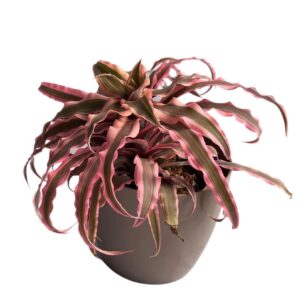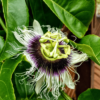View wishlist“Peperomia Green Plant” has been added to your wishlist
Krishna Kamal, Passion flower, Passiflora incarnata (Purple) – Plant
- Brand: Plantozia
₹299.00₹499.00 (-40%)
Out of stock
- Watering: Keep soil consistently moist.
- Light: Thrives in full sun to partial shade.
- Pet Friendly: Non-toxic to pets.
- Low Maintenance: Requires minimal care once established.
- Plant Size: Krishna Kamal, Passion flower, Passiflora incarnata (Purple) – Plant is Grows Medium size.
SKU:
PLKKPF530
Categories: New Arrivals, All Season Plants, Flowering Plants, Offers, Plants
Tags: Apricot Vine Plant, Krishna Kamal Plant, Maypop, Passiflora incarnata (Purple) Plant, Passion flower Plant, Rakhi Flower Plant
Brand: Plantozia
Krishna Kamal, Passion flower, Passiflora incarnata (Purple) – Plant Care Tips:
-
Light Requirements:
- Passion flowers thrive in full sunlight. Ensure they receive at least six hours of direct sunlight daily.
- If grown indoors, place them near a south-facing window where they can get ample sunlight.
-
Temperature and Humidity:
- Ideal temperatures range between 60°F and 85°F (15°C to 29°C).
- Passion flowers prefer high humidity levels. If growing indoors, consider using a humidifier or placing the plant on a humidity tray.
-
Watering:
- Water the plant regularly to keep the soil consistently moist but not waterlogged.
- During the growing season (spring and summer), water more frequently. Reduce watering in the dormant period (fall and winter).
-
Soil Requirements:
- Use well-draining soil rich in organic matter. A mixture of garden soil, compost, and sand works well.
- Ensure the soil pH is slightly acidic to neutral (around 6.0 to 7.5).
-
Fertilization:
- Feed the plant with a balanced, water-soluble fertilizer every two weeks during the growing season.
- Avoid over-fertilizing, as it can lead to excessive foliage growth at the expense of flowers.
-
Pruning:
- Prune the passion flower plant in late winter or early spring before new growth begins.
- Remove dead or weak stems and shape the plant to control its size and encourage healthy growth.
-
Support and Training:
- Passion flowers are climbers and require support to grow vertically. Provide a trellis, fence, or arbor for the plant to climb.
- Regularly train and tie the stems to the support structure to guide their growth.
-
Pest and Disease Control:
- Watch out for common pests like aphids, spider mites, and whiteflies. Use insecticidal soap or neem oil to treat infestations.
- Ensure good air circulation around the plant to prevent fungal diseases like powdery mildew and root rot.
-
Propagation:
- Passion flowers can be propagated from seeds, cuttings, or layering.
- For cuttings, take a 6-inch cutting from a healthy plant in late spring or early summer. Remove the lower leaves and place the cutting in a pot with moist soil.
-
Overwintering:
- In colder climates, protect the plant from frost by bringing potted plants indoors or providing a protective mulch layer for outdoor plants.
- Reduce watering and stop fertilizing during the winter months to allow the plant to rest.
-
Flowering and Fruiting:
- Passion flowers typically bloom in summer, producing large, exotic flowers.
- Some varieties also produce edible fruits known as passion fruits. Ensure the plant is pollinated, either by insects or by hand, to encourage fruit production.
-
Container Growing:
- Passion flowers can be grown in containers. Choose a large pot with drainage holes to accommodate the plant’s root system.
- Container plants may need more frequent watering and fertilizing compared to those planted in the ground.
-
Transplanting:
- If transplanting passion flowers, do so in the spring. Carefully dig around the plant to avoid damaging the roots.
- Replant at the same depth as it was previously growing and water thoroughly after transplanting.
-
Species and Varieties:
- There are many species and varieties of passion flowers, each with unique characteristics. Some popular varieties include Passiflora caerulea (Blue Passion Flower), Passiflora edulis (Purple Passion Fruit), and Passiflora incarnata (Maypop).
-
Uses and Benefits:
- Passion flowers are not only beautiful but also have medicinal properties. They are often used in herbal remedies for anxiety, insomnia, and stress.
- The fruits of some varieties are edible and used in beverages, desserts, and sauces.
By following these care tips, you can enjoy the vibrant beauty and potential benefits of passion flower plants in your garden or home.
Additional information
| Weight | 0.1 kg |
|---|---|
| Dimensions | 5 × 5 × 5 cm |
Only logged in customers who have purchased this product may leave a review.













Reviews
There are no reviews yet.